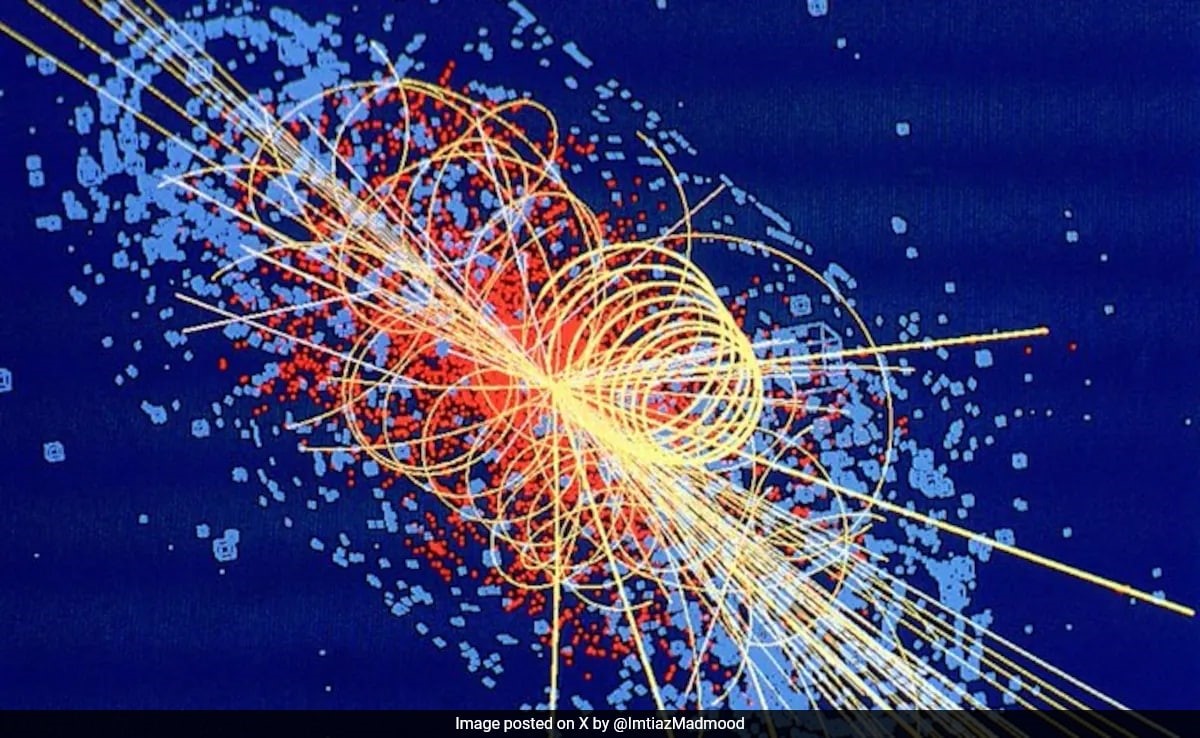





Source: NDTV
Disclaimer: Copyright infringement not intended.
Context
Details
About the Higgs Boson
Discovery:
Significance:
Why is it Called the "God Particle"?
Controversy:
Peter Higgs
Higgs Mechanism:
Legacy:
Conclusion
Must Read Articles:
Sources:
|
PRACTICE QUESTION Q. The discovery of the Higgs boson marked a significant milestone in particle physics, confirming the existence of the particle responsible for mass generation. Discuss. (150 Words) |










© 2025 iasgyan. All right reserved